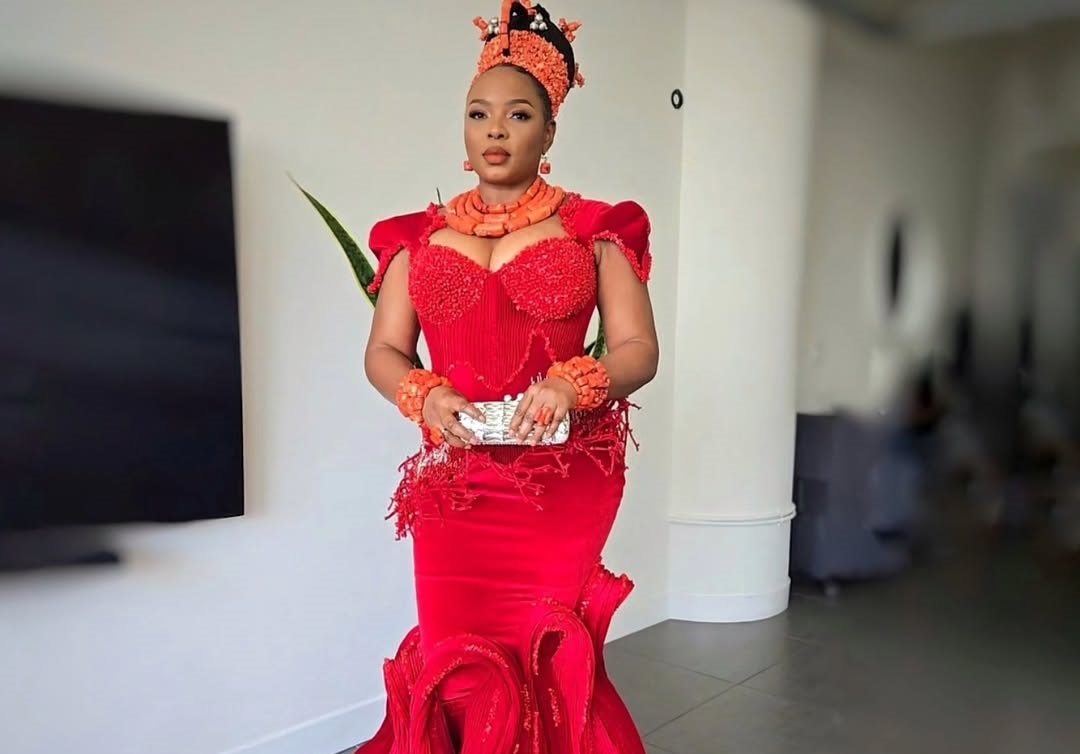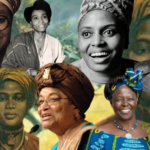Black consciousness is having its moment. Across the world, African pop music is captivating club DJs and enthralling global audiences.
In 2023, the Grammy Awards—billed as “the music industry’s highest honor”—introduced a new category for Best African Music Performance, celebrating the diverse range of musical genres emerging from the continent. But beyond the music, the Grammys may have inadvertently spotlighted another growing influence: African fashion.
Among the lineup of music stars who graced the red carpet at the 67th Grammy Awards was Nigerian Afrobeats singer Yemi Alade. Dressed in a dramatic maxi skirt and bodice, Alade accessorized with coral beads on her neck and wrists, paying homage to the indigenous Okuku hairstyle of the Benin Kingdom.
Although Tems’ historic win in the Best African Music Performance category stole the spotlight, Alade’s cultural ensemble sparked a wave of discussion on social media. While many celebrated her first Grammy nomination, some critics questioned whether her attire was appropriate for an international ceremony like the Grammys.
Alade’s cultural journey has been a defining feature of her career. Following the success of her 2014 hit single Johnny—which made her the first Nigerian female artist to surpass 100 million views on YouTube—Alade has remained committed to Afrocentric artistry.
Her lyrics incorporate elements of Yoruba, Igbo, Swahili, and other African languages, evoking comparisons to the legendary Beninese singer Angélique Kidjo, whom Alade has described as her “musical mother.”
“My love for Africa just genuinely grows,” she said in a recent interview with CNN. “In every country I go to, there’s something that’s culturally appealing.”
Alade’s global reach expanded further in 2020 when she was featured on Beyoncé’s Black Is King album, a project dedicated to celebrating African heritage.
For some, Alade’s choice to wear a culturally significant outfit at the high-fashion Grammys was a bold risk, especially as a first-time nominee. But this perspective overlooks the deep cultural ties that shape her music and artistic expression. Veteran Nigerian actor Chiwetalu Agu praised her decision, saying, “Not only did she represent Afrobeats, she also represented African culture.”
Just as Afrobeats has gained international recognition, African textiles are also making waves in global fashion. Designers are increasingly incorporating African motifs into their collections, and institutions such as Canada’s Textile Museum are spotlighting Nigerian fabrics.
Aso Ebi, a once-customary dress tradition among the Yoruba, has gained mainstream appeal, thanks to transcultural influences.
Alade’s Grammy outfit, created by Cameroonian fashion designer Djec Fashion, underscores the power of artistic collaboration across the continent. It serves as a testament to how African creatives can collectively elevate the continent’s fashion industry to a global stage.
From her music to her fashion choices, Alade has positioned herself as a custodian of African culture, reinforcing her reputation as “Mama Africa”—a title famously associated with South African singer Miriam Makeba. Her Grammy-nominated song Tomorrow further cements this legacy, with the Recording Academy noting that it “solidifies her reputation as ‘Mama Africa.’”
As African culture continues to shape global music and fashion, artists like Yemi Alade remind the world that authenticity and tradition remain powerful tools for cultural storytelling.
The celebration of black consciousness is evident in the global embrace of African pop music and fashion. The 2023 Grammy Awards recognized this trend by introducing a new category for Best African Music Performance. Nigerian Afrobeats singer Yemi Alade, known for her Afrocentric art, caught attention with her culturally-inspired outfit at the Grammys. Although her music garnered acclaim, her attire—showcasing African heritage—sparked discussions about cultural representation at international events.
Alade, whose musical journey mirrors her deep cultural roots, incorporates various African languages in her lyrics. Her international collaborations, such as on Beyoncé's "Black Is King," further highlight her commitment to celebrating African culture. Her Grammy outfit, designed by Djec Fashion, exemplifies the collaborative spirit among African creatives and underscores the influence of African textiles in global fashion.
Alade, often likened to South African legend Miriam Makeba, reinforces her title “Mama Africa” through both music and fashion, showcasing authenticity and tradition as significant cultural narratives. Her work epitomizes the growing global appreciation for African culture, with artists like her emphasizing the power of cultural storytelling.






